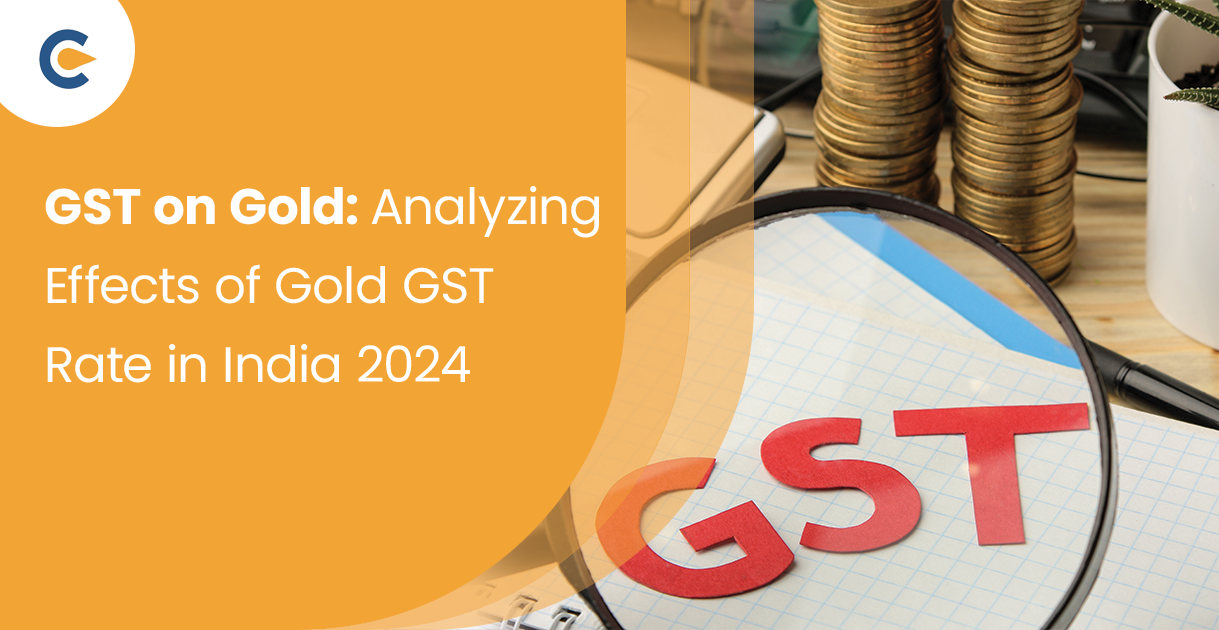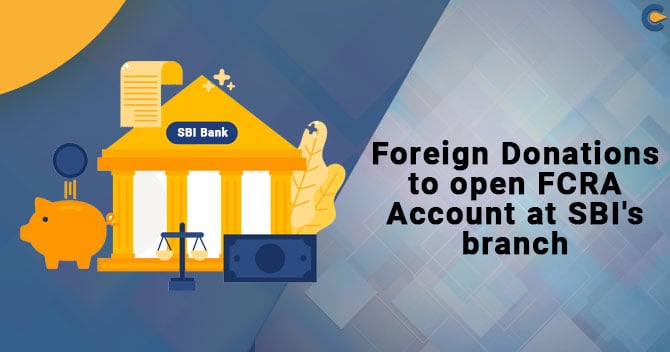One of the Indian legislations, the Foreign Contribution Regulation Act (FCRA), plays a crucial role in governing the receipt and use of foreign contributions or foreign hospitality by certain individuals, associations, and companies.
The FCRA prescribes a mandatory duty to file the FCRA Quarterly Return. An investigation will now be carried out into these issues regarding the need to submit, the filing process, current status, submission deadlines, penalties for non-compliance that may arise, and other relevant questions.
What do you Understand about FCRA Quarterly Return?
The Indian law necessitates organisations accepting foreign funds to submit a compulsory financial statement, known as the FCRA Quarterly Return. This report is a compliance requirement imposed by the government to promote openness and responsibility in the use of foreign contributions by non-profit entities and other organisations.
The FCRA Quarterly Return furnishes comprehensive details regarding the foreign funds obtained, the purposes for which they were employed, and an overview of the financial operations associated with these contributions.
Who must Submit FCRA Quarterly Reports?
Any entity enlisted under the Foreign Contribution Regulation Act (FCRA) and receiving funds from overseas sources is mandated to present a quarterly financial statement.
This obligation extends to non-profit organizations, charitable trusts, societies, and other establishments that participate in activities subsidized by foreign donations. The requirement to furnish these quarterly reports applies to newly registered entities as well as those that have been functioning for a considerable duration. Essentially, any organization accepting foreign contributions must conform to this reporting prerequisite to uphold its registration status under the FCRA.
FCRA Quarterly Return: Mandatory or Voluntary?
The submission of the FCRA Quarterly Return is an obligatory requirement for all entities enlisted under the Foreign Contribution Regulation Act (FCRA).
Failure to comply with this mandate can result in grave repercussions, encompassing pecuniary penalties, the suspension of FCRA registration, and potential legal proceedings.
The Indian government upholds strict adherence to compliance measures to curb the misappropriation of foreign contributions and to ensure that funds are utilised for their designated purposes. Consequently, it is imperative for organisations to meticulously abide by this requirement.
Important Dates: FCRA Quarterly Return Submission Deadline
The Foreign Contribution Regulation Act mandates the filing of the FCRA Quarterly Return within a fortnight of the conclusion of each quarter. The quarters are conventionally demarcated as follows:
QUARTER 1: This quarter is spanning from April 1st to June 30th, with the return due for submission by July 15th. This period encompasses the initial three months of the fiscal year.
QUARTER 2: This quarter commences on July 1st and culminating on September 30th, the return must be filed by October 15th. This quarter marks the midpoint of the financial year.
QUARTER 3: This quarter covers the duration from October 1st to December 31st, the return is expected to be submitted by January 15th. This period signifies the third quarter of the fiscal cycle.
QUARTER 4: This quarter encompasses the January 1st to March 31st period of the year, the return must be presented by April 15th. This final quarter concludes the financial year.
Timely submission of the FCRA Quarterly Return is paramount to circumvent any potential penalties or legal ramifications that may arise from non-compliance.
Necessary Details for FCRA Quarterly Return Filing
The FCRA Quarterly Return mandates the provision of comprehensive details regarding the foreign contributions acquired and their subsequent utilisation. The critical information required encompasses the following aspects:
- Specifics of the Donor: Specifics of donor should encompass their names, addresses, and countries of origin of the foreign donors which will help facilitate the contributions. This data aids in establishing the source of funds.
- Contribution Quantum: The total sum of foreign contributions obtained during the respective quarter must be accurately reported. This figure reflects the magnitude of foreign funding received.
- Purpose Delineation: specific elucidation of the intended objectives for which the foreign contributions were solicited is imperative. This aspect highlights the intended application of the funds.
- Fund Utilisation Breakdown: A detailed account of how the received funds were expended, providing a granular view of the allocation of resources. This information fosters transparency in fund management.
- Banking Particulars: Disclosure of the bank accounts where the foreign contributions were deposited, ensuring a traceable financial trail.
- Supplementary Documentation: Submission of relevant supporting documents, including receipts, utilisation certificates, and other pertinent records, substantiating the information provided.
Furnishing accurate and exhaustive information is pivotal to upholding compliance and fostering transparency in the utilisation of foreign contributions, thereby maintaining the integrity of the reporting process.
Stepwise Guide to File FCRA Quarterly Returns
The process of submitting the FCRA Quarterly Return encompasses several crucial steps:
- Preparation of the Necessary Information:
Get all the needed details on foreign contributions received, their utilisation and any other relevant supporting documents. This ensures that a good compilation of data is achieved in this preparatory phase.
- Portal Access through Login:
For access to FCRA online portal use authorised login of the organisation. It is a secure platform for submission.
- Complete the Form Needed for the Return:
Accurate entries made on an online return form providing correct information about receipts obtained and utilisation thereof in respect of contributions received must be provided. In this regard, accuracy in data entry cannot be compromised.
- Supporting Documents Needed to be Uploaded:
Attach specified supportive evidence like receipts and utilisation certificates as per the format prescribed therein. These are proofs or supporting materials for what has been stated.
- Review and Submission:
Before submitting the return, review diligently that the entered information is accurate and complete. It minimizes the possibility of mistakes or omissions.
- Acknowledgment Procurement:
At successful submission, collect an acknowledgement receipt from the portal. For compliance purposes, it serves as binding evidence which must be maintained for future reference.
FCRA Amendments 2022: key Changes and Implications
On 1st July 2022, the Ministry of Home Affairs issued a notification through G.S.R. 506(E), which introduced amendments to a few rules of the Foreign Contribution (Regulation) Rules, 2011. The major amendments are as follows:
Increased Threshold of Monetary from Foreign Contribution Received by Relatives – Rule 6 of the FCRA Rules:
- Until now, anybody who received an international gift above one lakh rupees or its equivalent in a financial year from any relative was required to inform the Central Government regarding the details of the foreign contribution received in electronic form through Form FC-1 within 30 days from the date of receipt.
- With the amendment, the monetary threshold has been raised to Rs. 10 Lakhs, and the time limit for reporting such foreign contributions has been extended from 15 days to 45 days.
Increased Limit for Bank Account Intimation-Rule 9(1) (e) & 9(2)(e) of the FCRA rules:
- Previously, a person could have one or more accounts in any of the banks where he/she would have kept all his/her foreign contributions after receiving them in case he/she wanted to use them. However, if an account was opened within this period, then one is obliged to make an electronic intimation by filling Form FC-6D to be sent to the secretary of home affairs in New Delhi, and this is supposed to take place within fifteen days starting from the day that their account got opened.
- Similarly, a person seeking prior permission under this rule could open one or more accounts in one or more banks to use the foreign contribution after its receipt, and intimation in electronic form through Form FC-6D was required to be furnished to the Secretary, Ministry of Home Affairs, New Delhi, within 15 days of opening an account.
With the amendment, the time limit for intimation in both rules has been increased from 15 days to 45 days.
Elimination of Quarterly Foreign Contribution Declaration on the Official Website – Rule 13(b):
- Previously, an individual or entity receiving a foreign contribution during a quarter of the financial year was mandated to publish details of the foreign contribution received, including the donors’ identities, amounts received, and dates of receipt, on their official website or a website specified by the Central Government within fifteen days following the end of the quarter in which the contribution was received. However, the amendment has omitted this clause, effectively eliminating the requirement to disclose quarterly foreign contribution details on the official website.
- It is important to note that the obligation to publish annual audited accounts on the NGO’s official website remains mandatory.
Additional Miscellaneous Amendments:
- Previously, any modifications to the bank account details, name, address, aims, objectives, or key members of the organisation were required to be communicated within 15 days from the date of such changes. However, the amendment has extended this notification period to 45 days (Rule 17A).
- Furthermore, Rule 20 previously stipulated that applications for the revision of orders issued by the competent authority under Section 32 of the Foreign Contribution Regulation Act were to be submitted on plain paper. With the amendment, the Government now reserves the right to prescribe the specific form and manner in which such revision applications are to be submitted.
Penal Consequences on Late Filing of FCRA Annual Return
- Failure to adhere to the regulations stipulated by the Foreign Contribution Regulation Act (FCRA), including the inability to submit the FCRA Annual Return within the prescribed timeline, can result in the imposition of penalties.
- The penalty levied for the delayed filing of the FCRA Annual Return is Rs. 10,000 or 5% of the foreign contribution received during the relevant financial year, whichever amount is higher.
In addition to the pecuniary penalty, failure to file the FCRA Annual Return on time may also result in the revocation of the organisation’s registration, which can have severe ramifications for its operational activities.
To Wrap Up
The timely submission of the FCRA Quarterly Return is a pivotal obligation for all entities receiving foreign contributions under the purview of the Foreign Contribution Regulation Act (FCRA).
This procedural requirement not only upholds regulatory conformity but fortifies the principles of transparency and integrity within organisations by holding them answerable for the foreign funds acquired.
Consequently, comprehending and adhering to the prerequisites of the FCRA Quarterly Return is of paramount significance for all applicable organisations.
Frequently Asked Questions
What is an FCRA Quarterly Return?
The FCRA Quarterly Return is a mandatory financial report that organisations registered under the Foreign Contribution Regulation Act (FCRA) in India must file if they receive foreign contributions or donations. It provides details on the foreign contributions received, their utilisation, and overall financial activities related to the foreign funds.
Who needs to file the FCRA Quarterly Return?
Any entity enlisted under the FCRA and receiving funds from overseas sources, including non-profit organisations, charitable trusts, societies, and other establishments that undertake activities subsidized by foreign donations, must submit the FCRA Quarterly Return.
Is filing the FCRA Quarterly Return mandatory?
Yes, the submission of the FCRA Quarterly Return is an obligatory requirement for all entities registered under the FCRA. Failure to comply can result in penalties, suspension of FCRA registration, and potential legal proceedings.
When is the FCRA Quarterly Return due?
The FCRA Quarterly Return must be filed within 15 days of the end of each quarter. The quarters are defined as April 1st – June 30th (due by July 15th), July 1st – September 30th (due by October 15th), October 1st – December 31st (due by January 15th), and January 1st – March 31st (due by April 15th).
What information is required in the FCRA Quarterly Return?
The return mandates the provision of comprehensive details regarding the foreign contributions received, including donor specifics, contribution quantum, purpose delineation, fund utilisation breakdown, banking particulars, and supporting documentation.
How is the FCRA Quarterly Return filed?
The process involves preparing the necessary information, accessing the FCRA online portal through authorised login credentials, completing the online return form with accurate details, uploading supporting documents, reviewing and submitting the return, and obtaining an acknowledgement receipt.
What are the recent amendments to the FCRA rules regarding the Quarterly Return?
The key amendments in 2022 include increasing the monetary threshold for reporting foreign contributions from relatives, extending the time limit for bank account intimation, eliminating the requirement to publish quarterly contribution details on the official website, and extending the notification period for changes to organisational details.
What are the penalties for late filing of the FCRA Annual Return?
The penalty for delayed filing of the FCRA Annual Return is ₹10,000 or 5% of the foreign contribution received during the relevant financial year, whichever is higher.
Can the failure to file the FCRA Annual Return on time lead to the cancellation of the registration?
Yes, in addition to the pecuniary penalty, the failure to file the FCRA Annual Return on time may also result in the revocation of the organisation's FCRA registration, which can have severe consequences for its operations.
Why is the timely filing of the FCRA Quarterly Return important?
Timely and accurate filing of the FCRA Quarterly Return upholds regulatory compliance, promotes transparency and integrity within organizations, solidifies credibility, and cultivates confidence among stakeholders, including foreign donors.
Read our article What Are The Different Types Of FCRA Registration In India?










